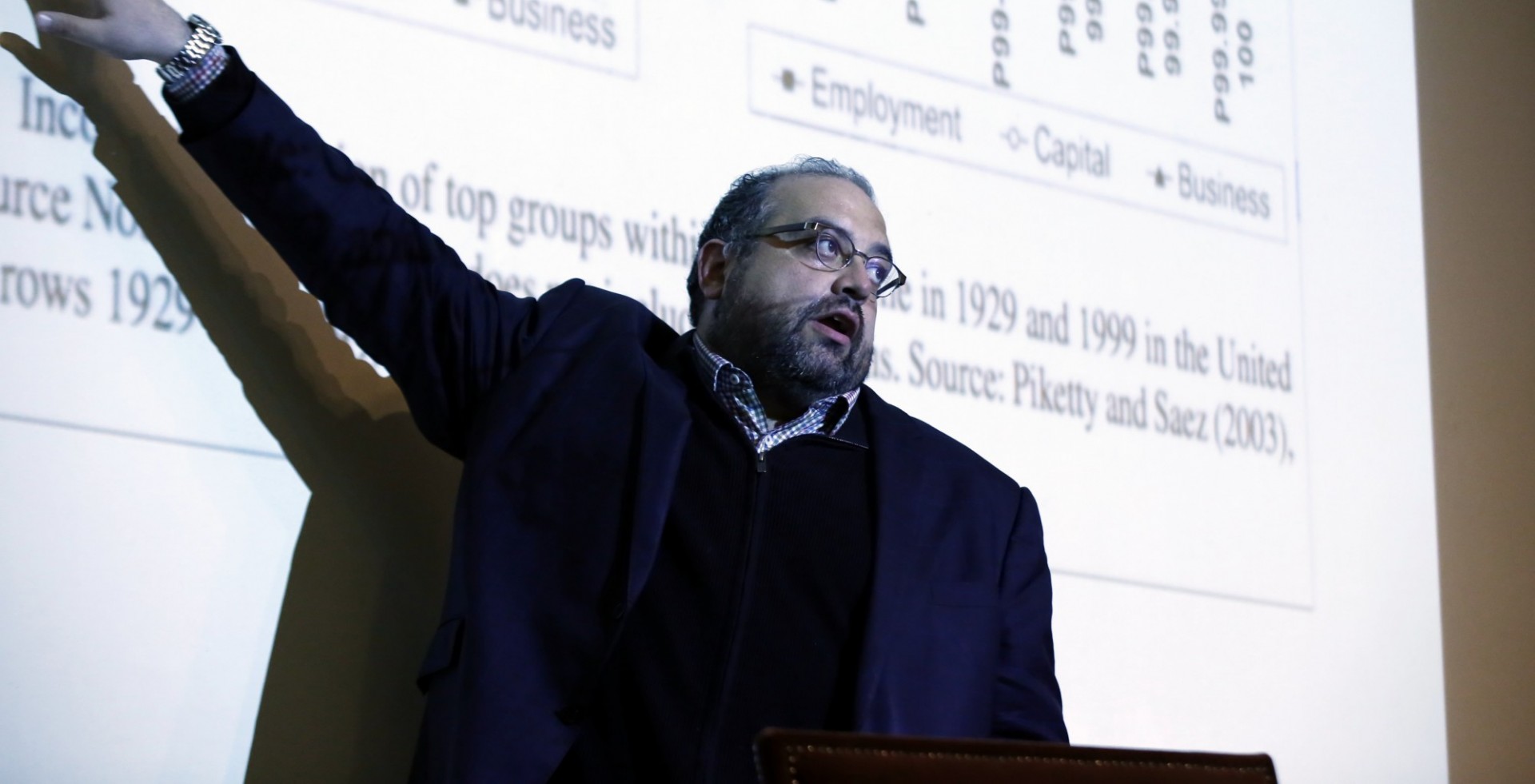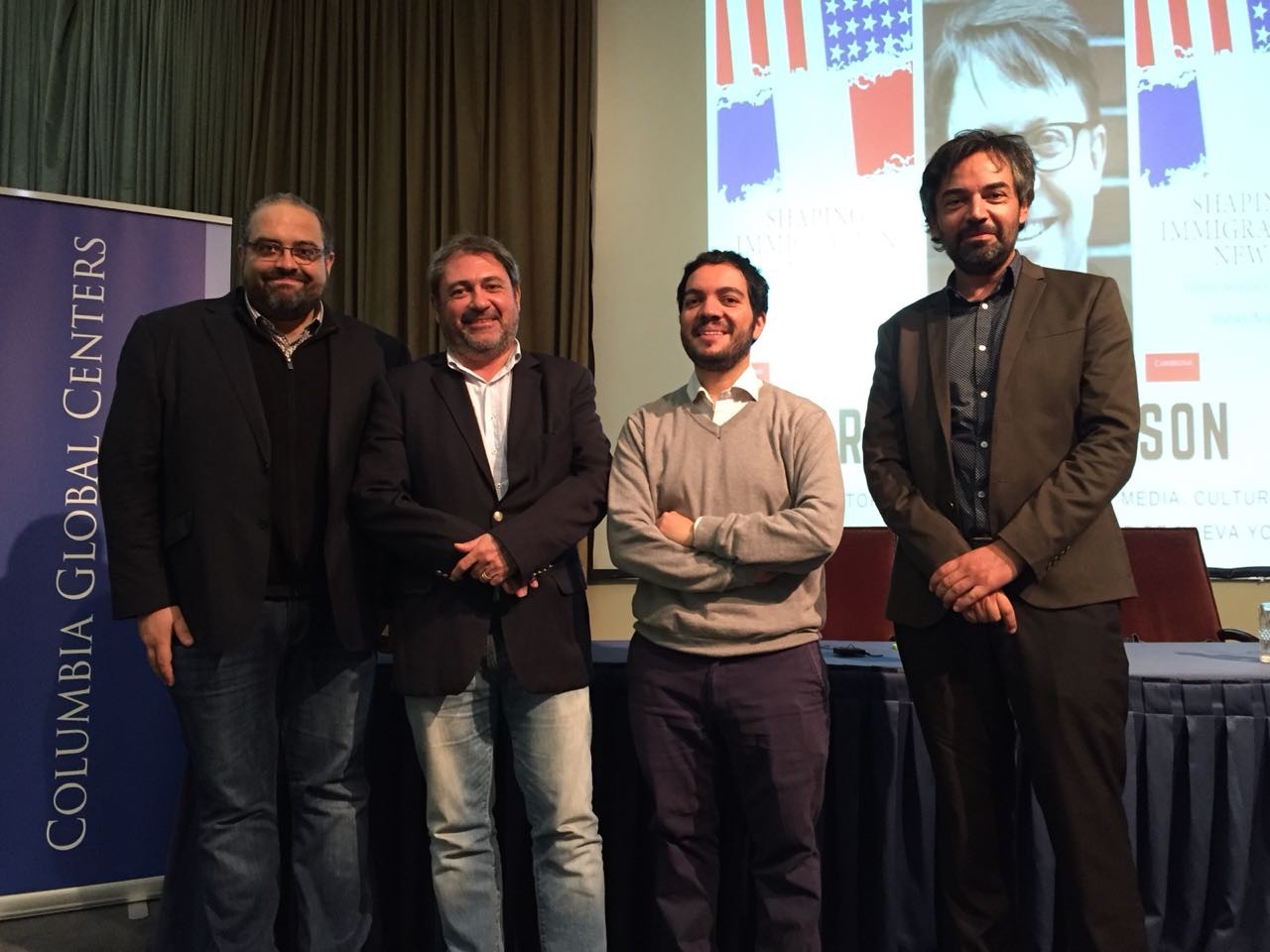Columbia University’s Expert on Elites and Meritocracy Lectures in Chile

Shamus Khan, Chair of Columbia University’s Department of Sociology, a columnist, and author of several books on elite formation, inequality and influence, visited Chile in May to teach a master-class entitled "The Economic and Political Power of the Elites." The event was organized by the Santiago Center in association with Universidad Católica Sociology Institute and the Center for Social Conflict and Cohesion Studies (COES).
Meritocracy is a foundational concept held in high regard in the United States, which is defined as a system in which the talented are chosen and moved ahead on the basis of their abilities and/or achievements. Despite this, the US features enormous economic growth among elites, poor and middle-class wage stagnation and very low social mobility, he explained during this widely-attended lecture.
For context, inequality rates in Chile are among the highest in developing countries and greater than the US. Here, the richest segments of society earn 20 times that of the poorest, according to the OECD.
One of Khan's takeaways is that meritocracy advances inequality. And he points out that inequality trends in society are driven by the wealthy and not by the poor or the middle-class. The nature of meritocracy rewards the outcomes of performance without considering the resources that went into generating those outcomes, he said. This is a net benefit to elites. Meritocracy is, he explained, "a cultural trope that is institutionally supported to increase the legitimacy of elites."
Economic elites are changing, he said. In the past most of it held ownership over capital processes, like factories. Now, the majority of the economic elite are wage earners. As a result, he concluded, this allows elites to identify with the common worker, because both receive paychecks, but define themselves as 'better' than those who are paid less.
Khan does not believe that this cycle of elite culture is permanent. Despite, the enormous resources that members of the elite place in the advancement of their children, the return on their investment is not borne out by an improved performance across the entire income level.
During his multiple days in Chile, Khan held individual meetings with Chilean journalists and others interested in his work, as well as a professional workshop for researchers from five institutions. The goal of the whole-day event was to present, analyze and critique related research by local academics and develop relationships for future academic relationships between Chile and Columbia. Khan presented his theories and research methodology on elites, and heard six presentations from academics at the Universidad Católica, Universidad de Chile, Universidad Alberto Hurtado, the U.N. Development Program, and the Universidad of Salvador in Argentina.

Shamus Khan with three top COES researchers: Alfredo Joignant, Professor of Political Sciences at Universidad Diego Portales; Jorge Atria, Professor at Universidad Católica’s Institute of Sociology; and Juan Carlos Castillo, Deputy Director at Universidad Católica’s Institute of Sociology.